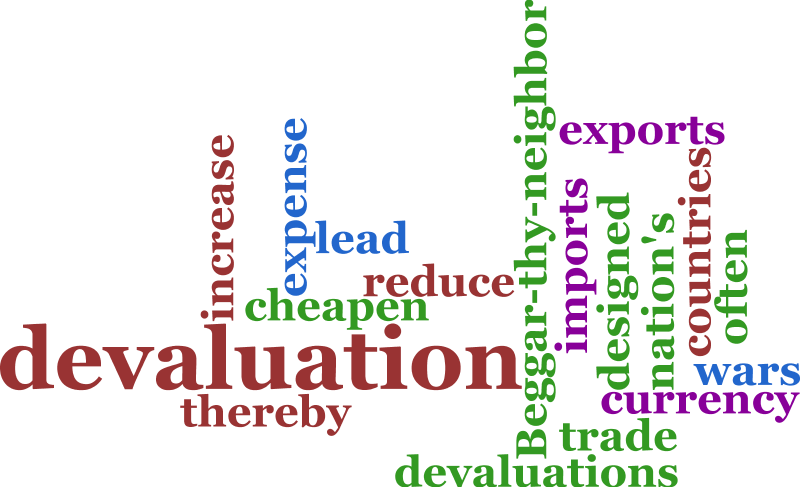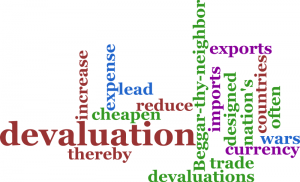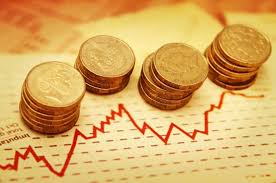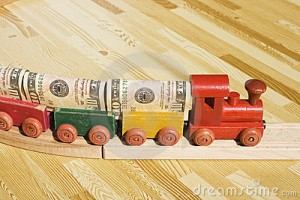Devaluation of a currency occurs in a fixed exchange rate system. Devaluation is usually defined as a fall in the value of the domestic currency relative to the gold or the currencies of other nations. Devaluation of a currency is not the result of non-governmental activities, infact, devaluation is decided by the government issuing the currency.
Devaluation of a currency reduces the demand for imports as imports will become expensive to the citizens of a devaluing country. Reduced imports protect domestic industries from competition, making them less efficient. Despite this negative impact, weakening of a currency could even be good for the economy.
Devaluation causes country’s exports to become less expensive, making the domestic goods cheaper for the foreign countries. So the increased competitiveness of domestic goods in the world market results in the increased demand for exports (if demand is relatively elastic).
Increased demand for exports and reduced demand for imports generates a boost in aggregate demand (AD) as the difference between exports and imports constitutes AD and higher AD is more likely to cause higher Real GDP.
Devaluation also results in the improvement in current account deficit due to higher exports and lower imports.
All these effects again have a negative impact on the economy i.e, inflation. As imports become more expensive, cost push inflation is more likely to occur. Higher AD results in demand pull inflation and due to increased exports competitiveness, manufacturers become more efficient and are less likely to cut costs any further and so overtime, costs may increase.
Devaluation is usually undertaken to combat trade balances. It is often seen as a way to tackle hardships.
Click here for government certification in Accounting, Banking & Finance





5 Comments. Leave new
well written about how devaluation affects an economy.
Great work. The trajectory has been well explained and needs no improvement.
Well written..!
Well explained.
Nice work..